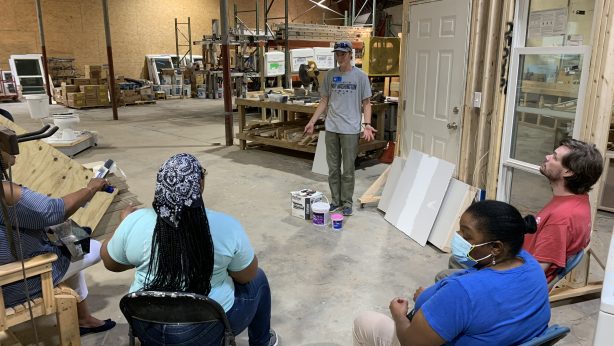Partner Voices: How Virtual Connections Through Telethealth Add and Subtract

Before COVID-19 and social distancing, one of the things we touted about Exchange Family Center was that we made proven coaching and counseling accessible by providing it in the home to families or in child care classrooms for teachers. That way the support needed was provided in the moments parents and teachers struggled with the behavior and emotions of the children in their care. No one had to find transportation or someone else to watch the children.
And then came COVID-19 and it turned our world inside out—we would not be able to sit in people’s living rooms or stand next to a teacher. Our coaching and counseling went virtual. What are the benefits and challenges of coaching and counseling through screens instead of in person?
Benefits for families:
Virtual services, for those who participated, gave families an opportunity to engage, and sometimes drew in family members who didn’t participate before because they couldn’t get away from work. This was a new level of accessibility. Another positive aspect is that with the coach or therapist off site and the family together, the child and their caring adults are more focused on each other.
Benefits for our staff:
Virtual visits reduced travel time and expenses—no more driving twenty minutes to find out someone couldn’t meet today. Virtual visits also reduced staff exposure to germs, bedbugs, allergens, untrained pets, and other health and safety risks in the homes and neighborhoods.
Although there were benefits, virtual services also had significant challenges.
Challenges for families:
While some of our families didn’t have the mental bandwidth to participate due to urgent issues related to food and income, some didn’t have the technological bandwidth, leaving them with frustrating connectivity issues. Sometimes a family’s living situation meant there was no private space to have a therapeutic conversation virtually from home. For families with really young children, it was hard to stay engaged in the session because the child was wandering off because the parent was engaging with the computer instead following the child’s lead.
Challenges for staff:
For some of our staff, connectivity and privacy were struggles like they were for our families. Once clinicians got set up and shifted fully to virtual sessions, “zoom fatigue” left them truly exhausted. Staff reported that via screens it was harder to read nonverbal cues and to see the dynamics between caregivers and children, some of the most critical information for coaching caring adults to be responsive to their children’s needs.
When social distancing is no longer required, some virtual visits will continue—to engage a parent who can’t otherwise join us, for a parent on bed rest, for a household with a contagious illness, to see the dynamics as they are without the clinician there. But telehealth does not provide the depth of interaction and allow for creating a safe therapeutic space the way we can when we are with children and the adults who are trying to help them.



